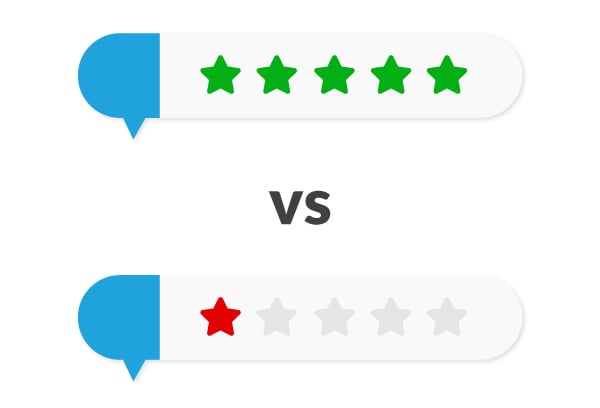
Why is it that consumers are more likely to talk about negative experiences than positive experiences? It may be due to emotion, negativity bias, unmet expectations, the increasingly rapid pace of life, or a combination of these factors.
According to a ZenDesk survey, bad news travels fast. The study revealed that 95% of customers shared bad experiences with others, while only 87% shared good experiences. It also showed that verbally, 54% shared bad experiences with over five people, and 33% shared good experiences with over five people. Meanwhile online, 45% shared bad experiences, and 30% shared good experiences.
Another survey found that 71% posted complaints online due to failing customer service. They also found that 30% of people posted online to vent negative feelings, while just 23% posted purely for vengeance.
So why are there more complaints?
Some of the reasons that consumers may be more likely to leave a negative review rather than a positive review on platforms such as Hellopeter include the following:
- Emotions play an important role. Disappointment and frustration are often strong drivers, prompting people to vent. It takes a matter of seconds for someone to bash out an angry post after a bad experience.
- People typically have a negativity bias. This means that we receive and hear negative information more quickly than positive information. We also process and remember negative information at a faster rate than positive information.
- Expectations are not managed. Consumers have come to expect brands to deliver a high quality of product and service. As such, positive experiences are not seen as something over and beyond basic service, but rather something that is par for the course. Those loyal to a brand may want to share a good experience, but others may assume that good service is a given.
- Consumers are often busy and pushed for time. Adding to expectations, consumers feel justified in speaking out about experiences that cause delays. When things do not work, consumers feel that their time has been misspent. This in turn increases the negative emotions.
What can businesses do to encourage positive reviews?
They can ask for reviews, for starters. Businesses should encourage customers to share their feedback, and in doing so, it will make it easier to generate positive reviews. Another way is to strive for a culture of transparency, accountability and proactive thinking. If businesses make it harder for customers to leave bad reviews by giving excellent service, they will certainly see a reduction. If businesses make it easier for customers to rethink their reviews by resolving the problem, they can turn a negative experience into a good one. Above all else, learning how to truly listen to customers is key.
Do your bit by giving credit when credit is due and write a positive review today.
Reviews on Hellopeter have Helped over 1 million customers make better choices. Had an experience you’d like to tell us about? Leave us a review here.
